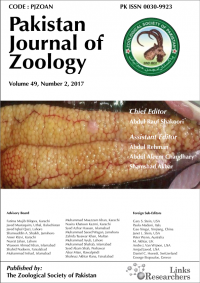ABSTRACT
Walnut (Juglans regia) is a valuable tree for its fruit, furniture wood and ecological purposes. It is widely grown on farmlands in Northern Areas of Pakistan, where it is a cash crop ranked third in value of exports after onion and tomato. It is attacked by a number of insect pests including walnut borer (Zeuzera coffeae Nietner) that adversely affects the yield and quality of the fruit and wood. This study describes the life cycle of the pest, the nature and extent of damage done to walnut, and the preventive measures applied under integrated pest management program (IPM) and includes the cautious use of chemical insecticides, mechanical means, cultural and biological control methods for the substantial control of walnut borer. The present study offers valuable information through IPM, which appears to be a promising approach for the control of walnut borer. Collectively this strategy has resulted in significant reduction of the pest population in the target area of district Dir, Pakistan.
To share on other social networks, click on any
share button. What are these?









